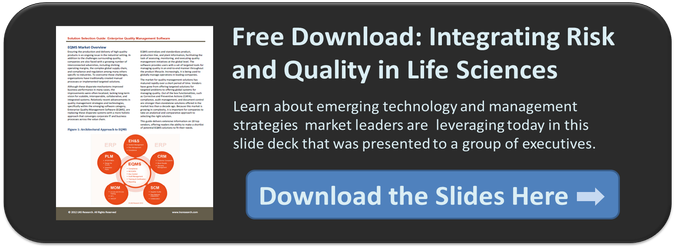A few weeks back the U.S. Pharmacopeial Convention (USP) updated its Food Fraud database, including a concerning number of new cases on the list. 800 instances of fraud were added, which was up significantly from the 1,300 recorded between 1980 and 2010. The nearly 60% increase put some of the staples we regularly consume into focus: milk, vegetable oils, spices, fish, wine, and more.
Reports show that manufacturers are engaging in food fraud for one main reason, cost savings. To put things into perspective, some cases regard the switching of white tuna with a similarly tasting and cheaper fish, escolar, which happens to be banned in multiple countries for its relationship with food poisoning. Other examples included teabags with lawn grass or fern leaves instead of the listed ingredients.
The deceitful use of fillers allowed many adulterated products to hit the shelves. So, who’s to blame? Food processors? Food service companies? Distributors? Farmers? It’s likely that government agencies will respond and manufacturers will reassess traceability capabilities. Below, I’ll provide more insight on these topics.
Food Safety and Traceability as a Government Initiative
Proceeding 9/11, the Bioterrorism Act of 2002 was passed to prepare for and protect U.S. citizens from harmful activities. A central piece to this act included strengthening food safety and traceability in both the U.S. food and drug supplies. It requires more stringent inspection and visibility into what comes into the country.
The Bioterrorism Act of 2002 mandates that manufacturing and industrial organizations have the ability to record sources of materials as well as where those materials are going. Under this “one up, one down” methodology, you need to know who your immediate suppliers are and who your customers are.
Share on LinkedIn | Tweet this post!
Similarly, the 2011 Food Safety Modernization Act (FSMA) places more focus on food safety and traceability in the F&B supply chain. It zeroes in on IT architecture and preventing the adulteration of products, rather than responding to them after the fact. While specifics and plans are still being finalized, manufacturers will be required to have stronger recordkeeping capabilities.
Given the newly released food fraud information, it’s likely that government agencies in both the U.S. and abroad will be reviewing that list of adulterated products in the context of existing and future legislation. There are already many IT and time requirements for recording information about suppliers and customers, but the USP's findings support the need for amelioration.
This leaves some tough questions to answer: It’s likely that compliance around IT and timing will continue to become stricter, but will that be enough to avoid food fraud? If you’re leveraging a deep supplier network and you only need to have visibility into your closest supplier, how can you validate the products of your supplier’s suppliers?
End-to-End Product Traceability in Manufacturing and Industrial Organizations
As we’ve mentioned before, it would be smart for manufacturers to get in front of the coming changes of FSMA and other alterations to existing legislation. Given that compliance requirements around recordkeeping will continue to increase for IT and timing, executives should review end-to-end traceability capabilities to protect their organizations as well as their customers.
In theory, all F&B organizations would like to have strong capabilities in end-to-end traceability, but it can be a challenge to actually practice it. In a recent blog post, we mentioned three reasons why product traceability strategy might be failing:
- Disconnected incentives
- Overconfidence in existing software
- Overconfidence in supplier quality
Overcoming these challenges can be difficult, however, executives can take a proactive stance on the matter by making supplier quality an enterprise-wide initiative. This means reviewing technology architecture and business processes to find gaps in end-to-end product traceability strategy. Additionally, it requires that supplier quality management becomes part of the culture, which relies on buy-in from the top for the rest of the organization to make it a central issue.
Effective end-to-end product traceability also requires that suppliers take ownership of and responsibility for the products being shipped to your receiving docks.
Pushing More Responsibility onto Suppliers
In addition to these challenges, companies leveraging the supplier network have the added risk of limited transparency. We’ve seen similar examples with counterfeit materials making their way into products bought by the Department of Defense, which was a driving force behind the National Defense Authorization Act (NDAA). The act helps to certify that dense contractors are properly screening equipment for counterfeit parts.
Under the NDAA, suppliers of materials and products are held more accountable for actions. There is the possibility of criminal charges brought up against a supplier if precautions such as screening are not taken. In this case, the viability of suppliers is closely related to the ability to validate that products are within certain quality specifications.
A lesson from the defense industry can be directly applied to the F&B industry: require manufacturers and other suppliers that are dependent on the supplier network to take more responsibility. If the suppliers you’re working with cannot provide the level of traceability needed, then choose to do business with other suppliers. By making supplier recordkeeping capabilities a requirement, you can mitigate external risks and also have a better grasp on the quality of your products.

You might also be interested in:
Improving Food Safety: Insights from Mar's and Dole's Product Recalls
EQMS for SMB: Balancing Growth and Quality